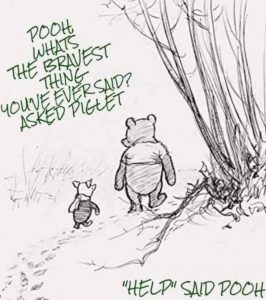 So much is written and discussed in the field of conflict management about the importance of apologies to help people resolve their interpersonal disputes and move on. On the other hand, many commentators in the legal world express the perspective that apologies are an admission of liability and so, steer away anything that sounds like accepting fault. In either case, it’s usually not the words of an apology in and of themselves that help us find resolution about a dispute. Various other factors play a part such as answers to questions like: Was it genuine? Was it timely? Was it empathetic? Was it honest?
So much is written and discussed in the field of conflict management about the importance of apologies to help people resolve their interpersonal disputes and move on. On the other hand, many commentators in the legal world express the perspective that apologies are an admission of liability and so, steer away anything that sounds like accepting fault. In either case, it’s usually not the words of an apology in and of themselves that help us find resolution about a dispute. Various other factors play a part such as answers to questions like: Was it genuine? Was it timely? Was it empathetic? Was it honest?
The reality is people on the receiving end are not always ready for an apology – we might still be processing our hurt about what was said or done; we might not be otherwise ready to move on; we might consider the behaviour exhibited as unforgivable. Some have heard too many apologies from the other person for the same behaviours, and feel trust has broken down irreparably.
This week’s Conflict Mastery Quest(ions) blog considers the importance of the quote above which is reminiscent of another common quote – ‘actions speak louder than words’. The following set of questions invites you to consider an apology you want to make for something you said or did, and also, one in which another person made an apology to you for something they said or did – but you have not accepted it.
- What is the conflict about – the one for which you want to express an apology? What do you want to apologize for?
- What might the other person say they want you to apologize for that may not be the same as your answer to the above (if anything)?
- If you were to try out the apology (just in our conversation here as a practice) what would you say to make it ‘right’?
- How might that apology as you expressed it be received by the other person (your answer to the above question)? If you don’t think the apology, as described in the previous question, would be well received what else might you say that might be?
- What actions or words will you use – or not use going forward – that will reflect the sincerity of your apology – something or some things you will change so you won’t contribute to a repeat of the same sort of interaction?
- What dynamic between you and the other person in this scenario make the change(s) you plan challenging? How might you overcome the challenge(s)?
- When you consider another dispute for which someone has apologized to you for their words or conduct what happened in that situation? For what specifically did the other person apologize?
- What still lingers for you that indicates you have not forgiven, or you’re not ready to accept the apology, or you remain wary of the other person (lost trust etc.)?
- What change(s) on the other person’s part would you like to see (or feel) such that you would experience the apology as ‘right’?
- What might make the above change(s) challenging for them? What does that mean for you?
- What else occurs to you as you consider these questions?
- What insights do you have?
#interpersonalconflict
#conflict
#coaching
#conflictcoaching
#conflictmanagementcoaching
#conflict management
#disputeresolution
#apology





